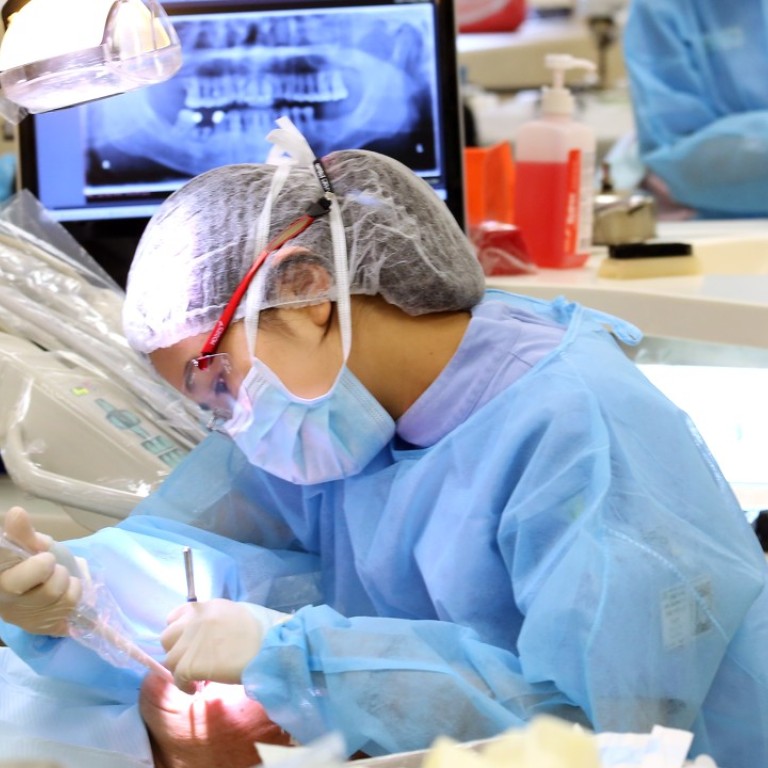
Dental services for Hong Kong’s elderly plagued by narrow public policies, lawmakers say
High private sector costs and limited subsidies affecting seniors’ access to proper care among issues raised at Legco meeting
Hong Kong has a higher percentage of dentists compared with a decade ago, but the sector is still plagued by long waiting times and limited access to dental care for the elderly because of narrow government policies, according to the city’s lawmakers.
Latest provisional figures released by the Department of Health showed that the ratio of dentists to the population also significantly improved, from 1:3,433 in 2007 to 1:2,964 last year. According to the World Health Organisation, the ratio is about 1:2,000 in most industrialised countries.
Access to dental care set to be widened for Hong Kong’s elderly as lower age for subsidy scheme proposed
Chan noted that 74 per cent of Hong Kong’s dentists work in the private sector or in institutions.
During the meeting, lawmakers expressed concerns over the accessibility of these services to the elderly.
“The shortage is shocking,” Labour Party’s Fernando Cheung Chiu-hung said.
At present, public dental services in Hong Kong mainly focus on the provision of emergency procedures as well as special oral care services for inpatients and those with special oral health needs.
The services are available in 11 government dental clinics and in some public hospitals.
“If these were enough, the elderly would not need to queue in the early hours of the day for dental services,” Cheung said.
If these are enough, the elderly would not need to queue in the early hours of the day for dental services
Cheung added that the 11 clinics only had a quota of about 900 places a week, citing research done by Legco.
While Chan emphasised that seniors could also use the Elderly Health Care Voucher scheme for private dental services, Democratic Party lawmaker Andrew Wan Siu-kin said many were not willing to do so because of the high costs.
“They either find the voucher amount not enough to cover the dental services or worry about not having enough vouchers left to use if they suffer from other health problems,” he said.
He asked Chan if the government would consider introducing a separate voucher scheme for dental care.
Lawmaker for the health services sector Joseph Lee Kok-long said the issue with the dental care sector was more about policies not being upgraded for many years instead of the number of available dentists.
Hong Kong government considers making pilot dental scheme permanent, undersecretary says
“Currently, public dental services only cover procedures such as tooth extraction and not others such as tooth filing,” he said.
Medical sector lawmaker Dr Pierre Chan said there were only eight dentists under the Hospital Authority handling all public inpatient cases.
There are 500 to 600 dentists under the Department of Health. The department provides a range of services on top of those for the public in the 11 government clinics, such as dental care for primary school pupils as well as for civil servants and their dependents.
Pierre Chan said the increase in the number of dentists in Hong Kong would not benefit the general population as most of these professionals do not enter the public sector.

